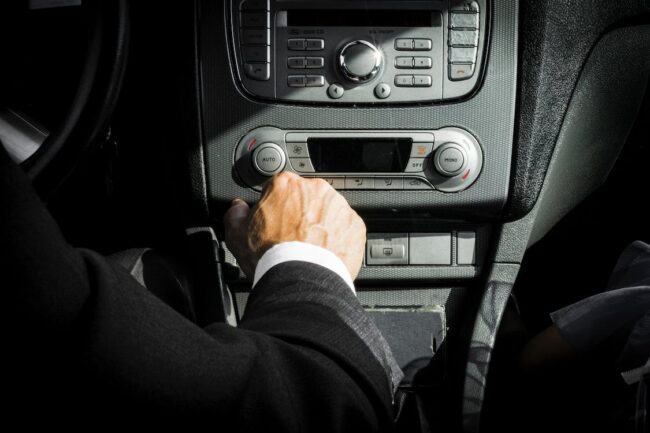
In the realm of automobiles, few debates are as persistent as the one centered around mileage. The question at the forefront: “Is 40 000 miles a lot for a car?” This query, often pondered by both automotive enthusiasts and novices, requires a nuanced exploration. While the surface answer might suggest high mileage equals impending doom, delving deeper reveals a more intricate reality.
Understanding Modern Engineering
Is 40 000 miles a lot for a car? Modern vehicles stand as testaments to engineering prowess. Advanced materials and manufacturing techniques bolster their durability, enabling them to withstand far greater distances than ever before. Components such as engines, transmissions, and suspensions are meticulously crafted to endure the trials of the road. While mileage undeniably takes a toll, routine maintenance, coupled with recommended service intervals, can effectively elongate a vehicle’s lifespan.

Driving Habits Matter
Is 40 000 miles a lot for a car? Mileage, though vital, isn’t the sole arbitrator of a car’s health. Driving habits exert significant influence. Consider two scenarios: a car cruising on highways versus one grappling with stop-and-go traffic. The former is likely to experience lesser wear and tear. Aggressive acceleration, abrupt braking, and neglecting maintenance expedite component degradation, regardless of the mileage.
Maintenance History
A comprehensive maintenance history trumps mileage as an indicator of a car’s reliability. A well-maintained vehicle with higher mileage can often outshine a neglected counterpart with fewer miles. Regular oil changes, brake inspections, fluid replenishment, and tire rotations collectively contribute to a car’s well-being. A meticulous owner who tends to these needs can foster a vehicle’s longevity, irrespective of its mileage.
The Role of Technology
Contemporary automotive technology has redefined the significance of mileage. Today’s cars are equipped with intricate sensors and diagnostic systems that pinpoint issues in their embryonic stages. This technological leap implies that potential problems can be nipped in the bud, regardless of the mileage. Hence, the sole reliance on mileage as a barometer of a car’s condition overlooks the strides achieved in predictive maintenance and early anomaly detection. Maintenance Trumps Mileage
The verdict is in: the adage “maintenance trumps mileage” holds true. Diligent upkeep transcends numerical markers on an odometer. Here’s why:
Longevity through Care: Regular maintenance and prompt repairs keep a vehicle’s vital organs functioning optimally. This enhances the likelihood of surpassing traditional mileage benchmarks.
Performance Preservation: Components subjected to continuous friction and heat demand periodic attention. Regular maintenance curtails wear and tear, preserving the car’s performance regardless of its mileage.
Cost Efficiency: Preventive maintenance is an investment that pays dividends. Addressing minor issues promptly mitigates the risk of expensive breakdowns, often associated with higher mileage vehicles.
Resale Value: A well-maintained car commands a higher resale value. Prospective buyers are often more interested in documented care and upkeep than the mere numerical value on the odometer.

What is a cutting-edge solution for managing my car’s mileage?
Introducing the ideal solution for managing your car’s mileage – the mileage blocker. Unlike traditional methods of removing past kilometers, this innovative device simply prevents any additional mileage from being recorded. Originally designed for testing purposes, it allows buyers to easily verify their vehicle’s performance. Regardless of whether your odometer measures distance in kilometers or miles, this module ensures seamless functionality without any noticeable effects.
While on the road, some individuals choose to use the mileage blocker to prevent control devices from logging their mileage. Some may wish to compensate for past errors, while others aim to enhance the resale value of their cars. It is crucial to emphasize that this technology should be used responsibly and ethically. If your intention is purely to assess your vehicle’s performance, investing in a high-quality mileage blocker presents an excellent and legitimate option.
Conclusion: Rethinking Mileage
Is 40 000 miles a lot for a car? In the grand tapestry of automotive longevity, quantifying 40,000 miles as either substantial or meager is no longer a foolproof approach. Instead, adopt a comprehensive perspective. Embrace a vehicle’s maintenance history, driving patterns, and the strides made in automotive engineering when assessing its condition. By embracing this holistic mindset, you empower yourself to make astute decisions regarding purchasing, maintenance, or resale, liberated from the constraints of mileage misconceptions.
Latest Posts
- 1
- 2
Is Buying a Car with Over 100k Miles a Good Idea?
April 10, 2024 - 3
Why Are High Mileage Cars So Expensive? – A Guide
April 5, 2024 - 4
Where Is The Mileage Located In A Car?
April 3, 2024 - 5
Whats High Mileage in Vehicles?
March 29, 2024 - 6
What’s The Gas Mileage On A Smart Car: A Comprehensive Guide
March 27, 2024 - 7
At What Mileage Should You Sell Your Car?
March 22, 2024 - 8
Should You Buy a Car with Over 100k Miles?
March 20, 2024 - 9
Should You Buy a Car with 100k Miles?
March 15, 2024 - 10
Understanding ODO Meaning in a Car
March 13, 2024








